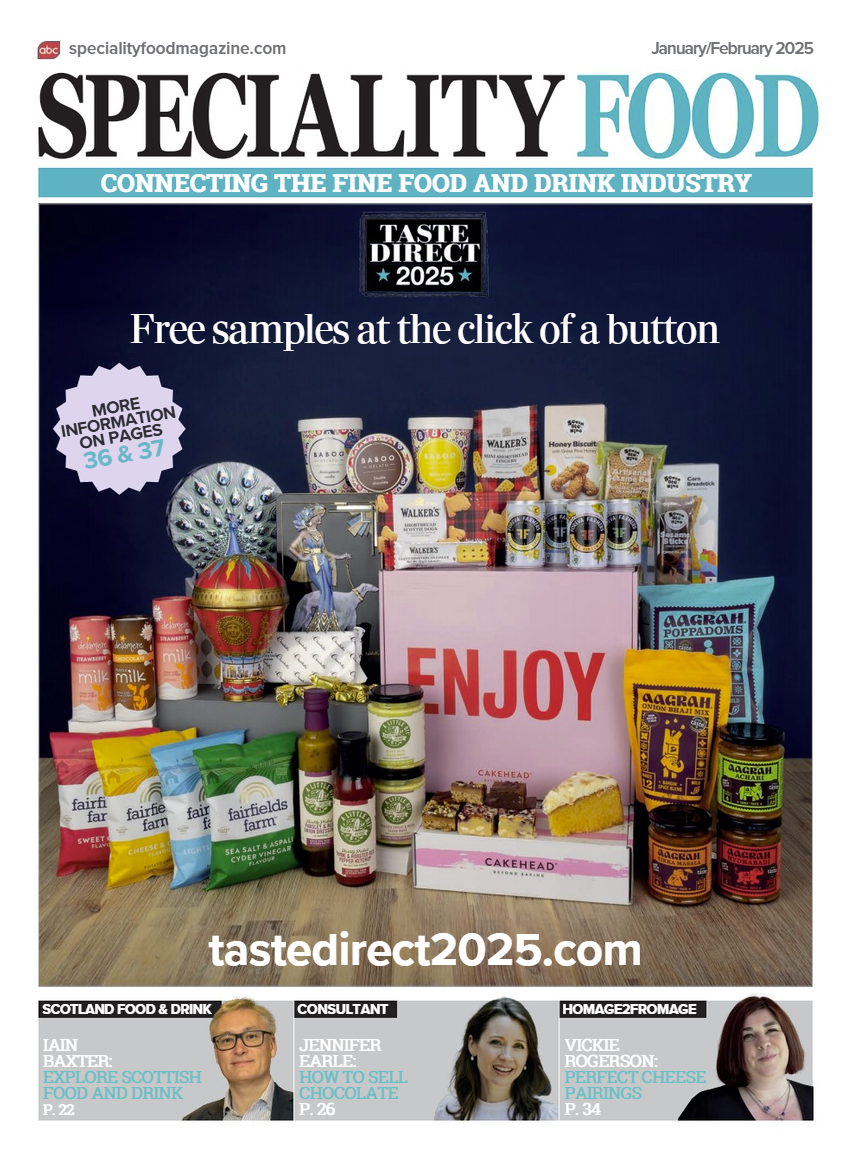“Captain Chutney triumphs once more”

- “Sticky fingers”
- “Everyone’s a winner”
- “Myths and legends of Turophilia”
- “When ‘cheese’ is not cheese”
- “Don’t disrespect the Cheddar”
I learned something today – the real difference between cross-selling and up-selling. Business jargon is ever-developing; new terms can mean new slants for consultants, even if the principles have been in operation for centuries
New words such as ‘up-sell’, ‘basket value’ and suchlike can feel inelegant at first, yet they meld quickly into popular parlance. Take BOGOF, which used to require patient explanation, even in the trade media, yet is now happily spoken of on TV and radio without further clarification.
In the cheese world, there’s a significant role for both up-selling and cross-selling. Many a time new customers come in, asking for ‘plain cheese’. This usually means they are looking for Cheddar. Merely fulfilling their order with the block ‘family’ Cheddar means missing an opportunity – not just to sell them something more costly, but also to delight their tastebuds and set them them on the road to getting much greater enjoyment from their cheese. Anyone venturing into a cheese shop asking for a generic such as ‘plain’, ‘blue’ or ‘goat’ is ripe for the up-sell to a premium variety which they’ll really enjoy, both in the eating and in the knowledge they acquire about it. Often they’ll be reluctant to go back to the supermarket block that used to be their staple diet. Most specialist shops practise this technique without being conscious of it – it’s our way of life.
A cross-sell is something that merits forethought, however. In the cross-sell, we offer the customer something additional to that which they’ve asked for. It doesn’t have to be complex – perhaps just the suggestion of great biscuits and a preserve to accompany the cheeses that they’ve spent time selecting. It’s less time-consuming to add another six or seven quid to a shopper’s basket with these accompaniments than it was to sell them an additional variety of cheese. We used to have a guy work in my shop, whom we dubbed “Captain Chutney”. He was the superhero of the cross-sell, personalising each suggestion in a confiding way. He’d share his experience with customers: “I really enjoyed that Vinny with Pear Chutney last night”, “Hmmm… (Looking at their purchases as he rang them up at the till) a soft goat! I love that with Charcoal biscuits – have you tried the ones with cumin?”. Looking at my weekly sales figures I could always tell which days he’d been working the till, as sales of preserves and biscuits went through the roof.
Remembering to top up each basket with the cross-sell is imperative if we want to get the benefit of our carefully chosen stock, the shelf space we’ve devoted to it and the staff we’ve trained. Hopefully it’s second nature to ensure that all team members get a taste of a new cheese that we’ve just taken in. But do we take time to open packs of biscuits and a jar or two of preserve and see what works well with the new cheese?Enabling our staff to say, with sincerity, that they have really enjoyed a pairing of flavours carries a lot more conviction than a bland statement such as that sheeps’ cheeses go well with quince.
I’m having great fun at the moment going through a client’s range of cheeses and accompaniments to create suggested cross-sales that’ll deliver an upturn in takings, greater fulfilment for the sales staff and great experiences for their customers. Now, how about a cheeky half bottle of Port to go with that?
more from Town Crier
-
“Black and White thinking”
08 August 2019 Town CrierLast time around I suggested trumpeting the benefits of the produce we offer, and the importance of conveying its taste and of making each purchase viscerally appealing. -
“We’re a resourceful bunch”
17 May 2019 Town CrierIt’s almost exactly 10 years ago that I sat down to create the first business plan for my cheesemonger. -
“Waxing lyrical”
12 February 2019 Town CrierOn a family holiday to Normandy in 1965, my parents and their adult friends were hugely excited by Livarot and Camembert – seldom seen back home in Hampshire.

